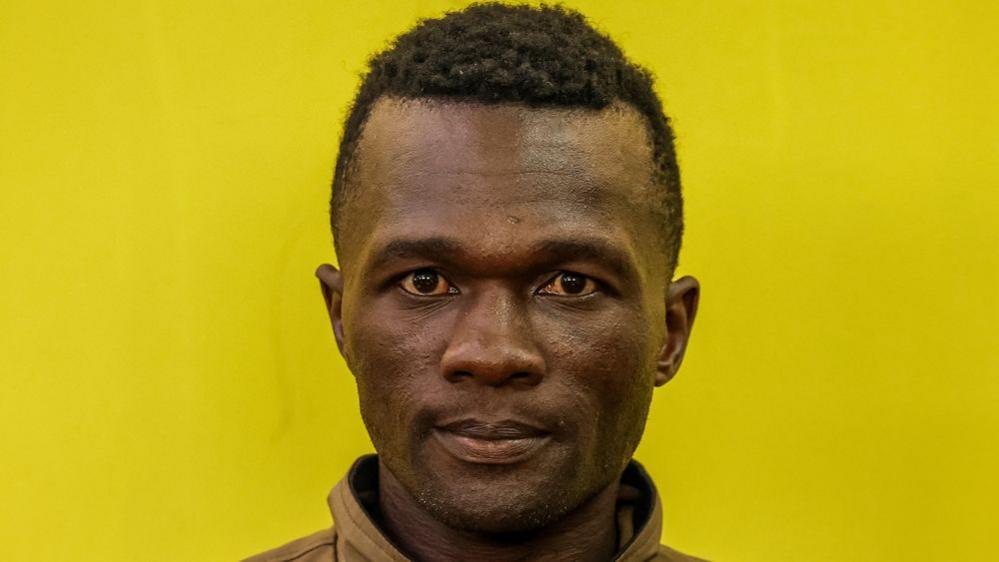Kenyan police accused of helping suspected serial killer escape

Police were holding Mr Khalusha while still investigating the multiple killings
- Published
Five police officers in Kenya have been charged after a suspected serial killer escaped from custody, police have said.
In July police said Collins Jumaisi Khalusha had confessed to the murders of 42 women, including his wife, since 2022.
Mr Khalusha's lawyer denied the claim, saying his client had been tortured to confess.
He had been held at a police station since being arrested in July, but on Tuesday police said that Mr Khalusha and 12 others escaped after being "aided by insiders".
An incident report from the station says police discovered the detainees were missing at 05:00 local time (03:00 GMT) on Tuesday, when officers were serving breakfast.
The 13 individuals escaped by cutting through a wire mesh roof and scaling a perimeter wall, the report added.
The 12 individuals who fled alongside Mr Khalusha were Eritrean nationals detained for entering the country illegally, police said.
Eight officers on duty at the time have been suspended, while investigations continued, police added. Five were charged on Wednesday with helping an inmate escape custody.
Mr Khalusha, 33, was detained following the discovery of nine mutilated bodies at an abandoned quarry in the capital, Nairobi.
The victims were aged between 18 and 30 and were all killed in the same way, according to the police.
Their murders sparked shock and outrage. Many questioned how officers failed to detect that bodies were being left in a quarry around 100m (109 yards) from a police station.
They also wondered how 42 people could be murdered in the space of two years without police noticing - and how, after not suspecting anything for so long, officers made an arrest in less than three days after the bodies were discovered in the quarry.
Kenya's police watchdog also expressed some scepticism. The Independent Police Oversight Authority launched an investigation to establish whether the police themselves were linked to the killings, following “widespread allegations of police involvement in unlawful arrests [and] abductions”.
It has not yet released its findings.
Police in Kenya have been accused of scores of human rights abuses in the past - and the force is currently under investigation over deaths and abductions following recent anti-government protests.
At the time of Mr Khalusha's arrest, Directorate of Criminal Investigations (DCI) chief Mohamed Amin said: "It is crystallising that we are dealing with a serial killer, a psychopathic serial killer who has no respect for human life, who has no respect and dignity."
Mr Khalusha's lawyer, John Maina Ndegwa, told the BBC in July: "He says he was strangled to confess. You could tell he was in distress, terrified and in anguish."
The suspect appeared in a court in Nairobi on Friday, when the magistrate ordered him to be held for a further 30 days so that police could complete their investigations, news agency AFP reported.
The discovery of the dismembered bodies came as the country was still shaken from the so-called Shakahola forest massacre, where more than 400 bodies were found in mass graves near the Indian Ocean coast.
Cult leader Paul Mackenzie had allegedly encouraged his followers to starve themselves in order to "go see Jesus".
He has pleaded not guilty to manslaughter.
More BBC stories from Kenya:

Go to BBCAfrica.com, external for more news from the African continent.
Follow us on Twitter @BBCAfrica, external, on Facebook at BBC Africa, external or on Instagram at bbcafrica, external